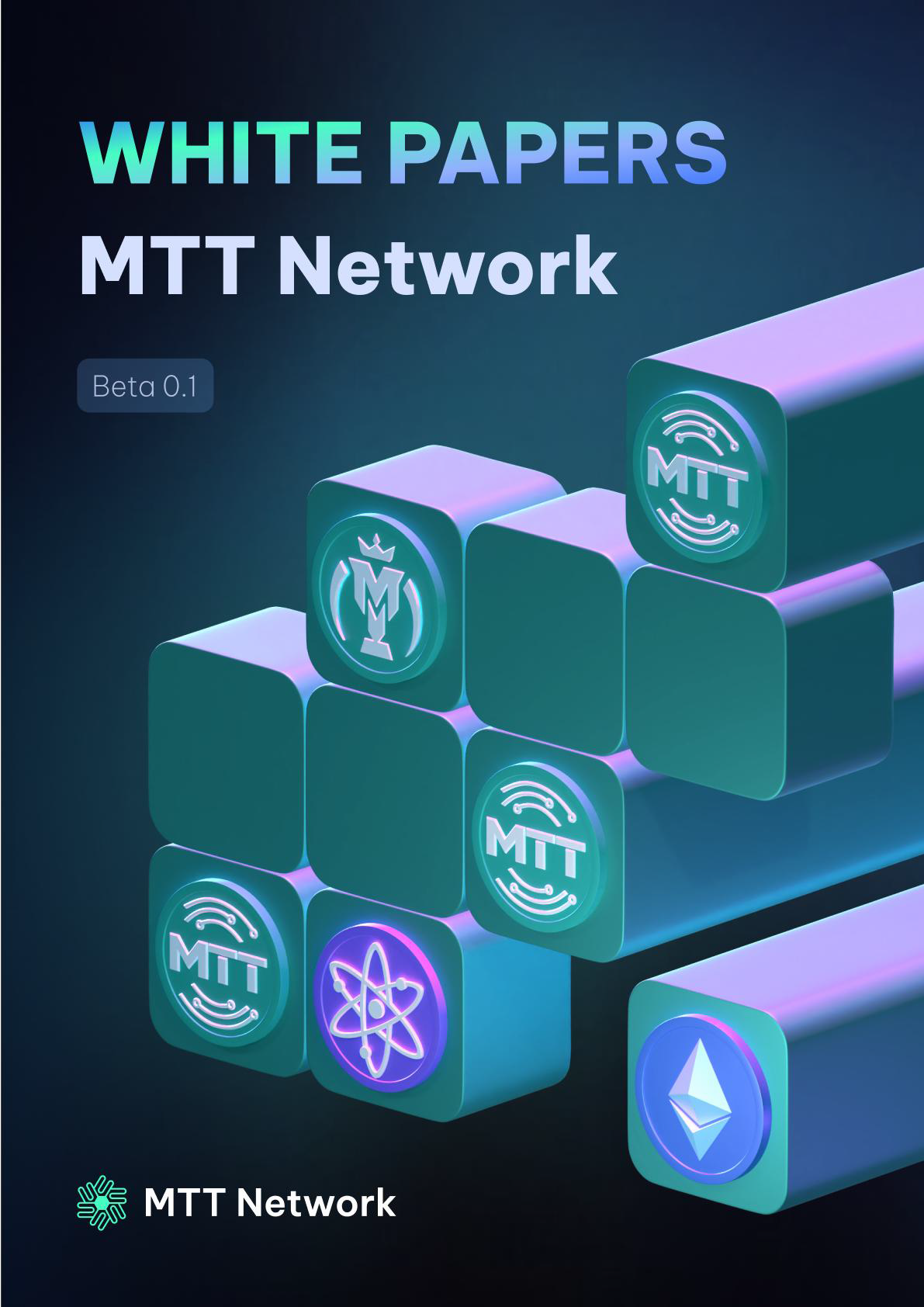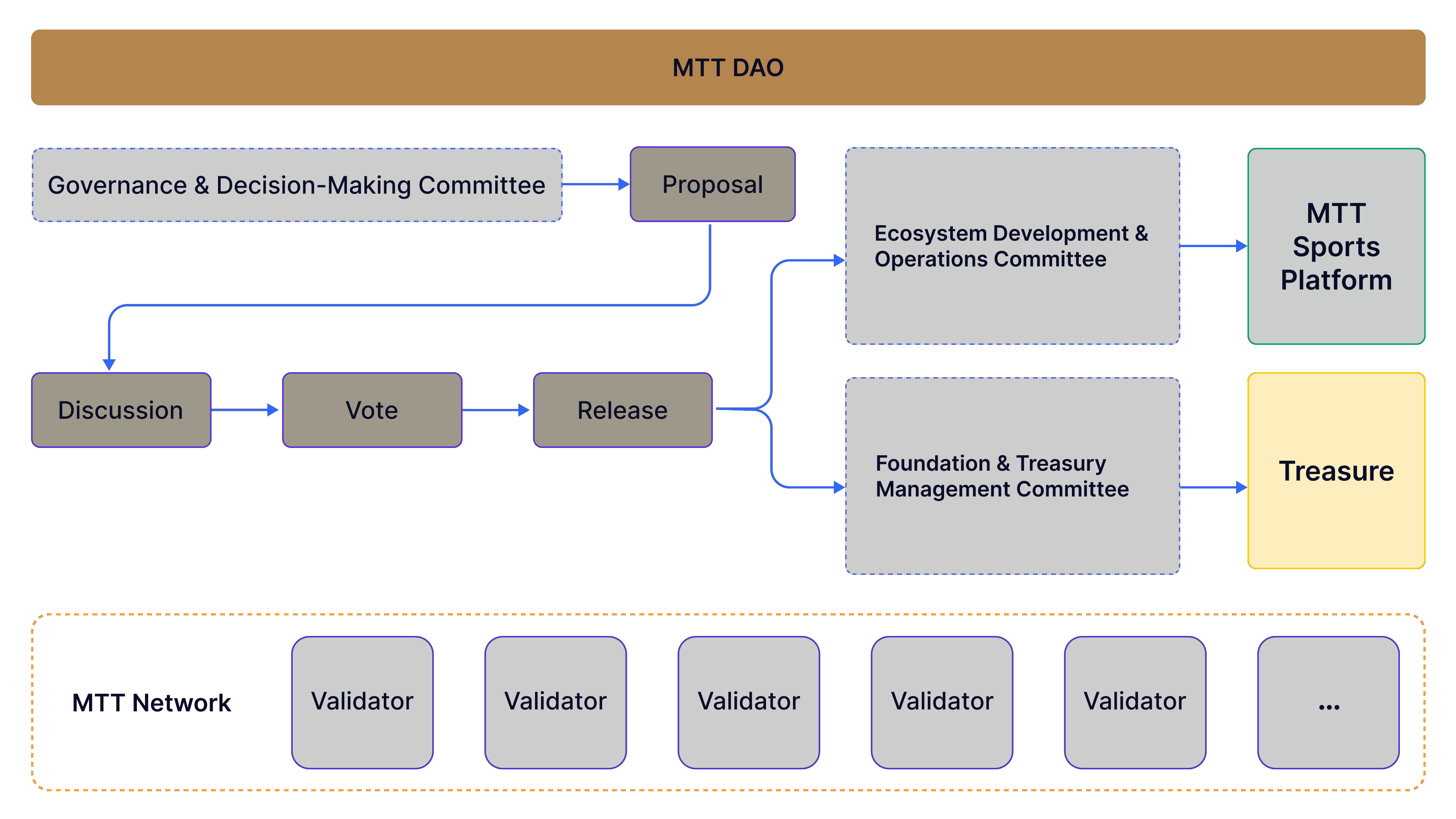MTT Network White Paper part 2

II. DEVELOPER PROGRAM
The MTT Network developer ecosystem is designed to support developers in creating rich tournament application scenarios, centered around the core value of the chain.
According to the Roadmap's milestone plan, MTT Network will offer comprehensive infrastructure and tool support, including development toolchains and standardized smart contract templates. The focus is especially on tournament-related functional modules, such as multi-tier tournament management and NFT ticket issuance, to help developers quickly get started. Cross-chain interoperability is also key. MTT Network integrates with assets and functionalities from other chains through the IBC protocol, enhancing the diversity and appeal of tournament applications.
Additionally, the community and support system are crucial for developer growth. Through developer incentive programs, educational resources, and on-chain testing resources, MTT Network ensures continuous support and motivation for developers. Decentralized governance is equally indispensable, with MTT DAO allowing developers to directly participate in decision-making regarding the direction of on-chain feature development. The on-chain application marketplace and open API system will provide a platform for developer innovation, driving MTT Network to become a decentralized ecosystem leader in the field of tournament applications.
III. DECENTRALIZED AUTONOMOUS ORGANIZATION
A. DAO Organizational Operations

Figure 4. DAO Organizational Operations
- Governance & Decision-Making Committee: Responsible for establishing the core rules and strategic direction of the DAO, evaluating community proposals, managing the voting process, and overseeing execution.
- Operations & Ecosystem Development Committee: Focuses on promoting the growth of the MTT Sports ecosystem, advancing day-to-day operations, managing the implementation of projects, and allocating resources on the platform. This committee ensures that approved proposals are effectively implemented.
- Foundation & Treasury Management Committee: In charge of managing the financial resources and treasury funds of the MTT ecosystem, overseeing token issuance and financial expenditures. The committee ensures transparency in fund usage and regularly reports financial status and audits to the community.
B. DAO Governance Credentials
The main participants of the MTT DAO are MTT token holders. To diversify governance, the community can vote to include members who have made special contributions to the community. These contributions extend beyond just holding or staking tokens and include a wide range of efforts:
- Technical contributors: Provide support for smart contract development, platform optimization, and security improvements for MTT Network
- Community builders: Organize activities to enhance community cohesion
- Content creators: Write tutorials, analysis articles, and promote the project
- Ecosystem partners: Bring in external resources, fostering collaborations
By incorporating these members, MTT DAO's decision-making process becomes more diverse and innovative, laying a solid foundation for the community's long-term growth.
GLOSSARY
- EVM (Ethereum Virtual Machine)
- A virtual execution environment that supports a single scripting language, primarily used in Ethereum-based smart contracts.
- Candidate
- A nominee for the role of Validator, responsible for participating in the election process to become a Validator.
- Validator
- Selected from Candidates, Validators are responsible for signing messages in the Tendermint consensus process.
- Delegator
- An individual who delegates their MTT tokens to a Validator (or Candidate) and shares in the associated rewards.
- Unbonding period
- The buffer time from when a holder initiates unbonding to when they regain control over their MTT tokens.
- Transaction fees
- Fees included in an MTT Network transaction, earned by Validators, and distributed among Validators and Delegators based on their bonded Atom amounts.
- Double Signing
- A serious malicious act where a Validator node signs blocks on two different chains simultaneously.
- Verifiable Random Function (VRF)
- A function used to generate random numbers that can be verified for authenticity and integrity.
- GAS
- Transaction fees on the MTT Network, used to pay for the computational resources required to process and validate transactions.
- IBC (Inter-Blockchain Communication Protocol)
- A protocol enabling different blockchains to communicate and interact with each other.
- Solidity
- A binary instruction format for a stack-based virtual machine, used for deploying smart contracts in a more efficient and secure manner on blockchains.
- Cosmos SDK
- Modular components of the Cosmos SDK, which provide various functionalities for building blockchain applications.
- Tendermint
- A consensus algorithm used in Cosmos-based blockchains, providing Byzantine Fault Tolerance (BFT) to ensure network security and consensus.
- Validator Node
- A node in the blockchain network responsible for validating transactions and creating new blocks as part of the consensus mechanism.
- RNG (Random Number Generator)
- A system or algorithm used to generate random numbers, often utilized in gaming and cryptographic applications.
- MTT in Poker (Multi-Table Tournament)
- A poker tournament format where players are distributed across multiple tables, as opposed to single-table tournaments or sit-and-goes.
- Vyper
- A high-level programming language designed for the Ethereum Virtual Machine (EVM), focusing on simplicity and security, making it particularly suited for developing smart contracts that prioritize code safety and auditability.
- Yul
- An intermediate-level programming language used for optimizing smart contract execution on the Ethereum Virtual Machine (EVM), serving as a low-level language that compiles into EVM bytecode and is often used for optimization purposes.
REFERENCES
- Cosmos SDK Documentation (docs.cosmos.network)
- Building with the Cosmos SDK (blog.cosmos.network)
- A Developer's Guide to Cosmos SDK (cosmos.network)
- Understanding the Cosmos SDK (academy.binance.com)
- Inter-Blockchain Communication (IBC) Protocol Overview (tutorials.cosmos.network)
- Understanding Decentralized Autonomous Organizations (DAOs) (ethereum.org)
- The Tokenized Governance: An Introduction to DAO Voting Mechanisms (medium.com)
- Governance in DeFi: Exploring Different Voting Models (decrypt.co)
- How to Build Effective DAOs: Governance and Voting Structures (daotimes.com)
- Snapshot: Off-Chain Voting Solution for DAOs (docs.snapshot.org)
- The Role of Token Locking in Decentralized Governance Systems (blog.openzeppelin.com)
- Aragon: Building Decentralized Autonomous Organizations (aragon.org)
- Understanding Maker DAO's Governance Model (makerdao.com)
- An Overview of Compound's Governance System (compound.finance)
- Optimizing DAO Participation Through Quadratic Voting (medium.com)
- DAO Governance Attack Vectors and Security Considerations (consensys.net)
- The Mathematics of Poker by Bill Chen and Jerrod Ankenman (mathofpoker.com)
- The Theory of Poker by David Sklansky (pokerbooks.com)
